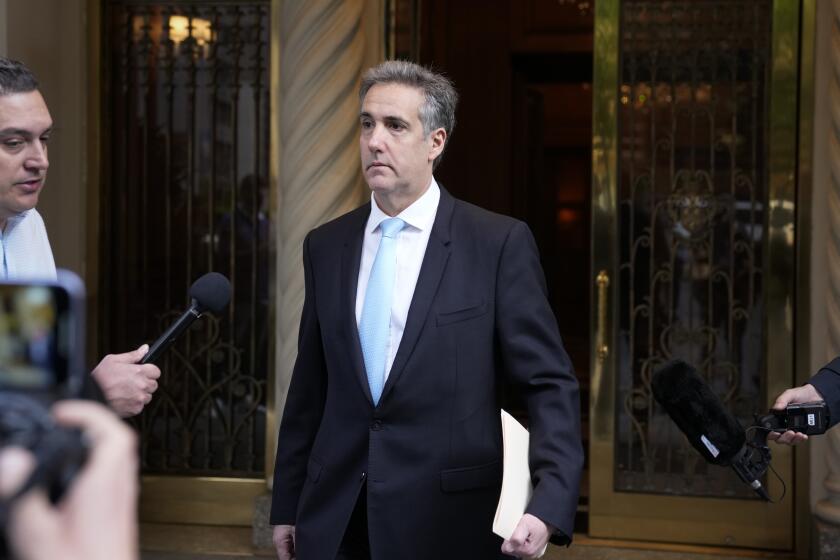For Once, the Campaign Hits the Real Issue
U.S. election campaigns, says the conventional wisdom, have become little more than televised beauty contests having nothing to do with important issues.
But this year the conventional wisdom is wrong. For a profound issue--call it economic nationalism, or America’s place in a changing world economy--is at the heart of the presidential campaign.
You see the issue’s hot-air side in candidates describing U.S. investment overseas as “exporting American jobs,” or saying they will stand up to South Korea.
But you see the issue’s real side in the uneasiness of ordinary Americans over rising foreign investment and in their fears for America’s economic independence.
Furthermore, Americans have reason to fear the consequences of paying $40 billion a year in interest to foreign nations.
So it’s not a bad thing that economic nationalism is the issue of the campaign. A spirited debate from now until November could clear away a lot of confusion.
And confusion reigns because we face more than conventional competition with other nations. Depend on it: The United States is not threatened by South Korea, an economy with 2% of the U.S. GNP.
What really is causing so much change in the world is technology--specifically the spread of semiconductor electronics and computers to industry and more broadly the spread of knowledge to nations everywhere. (The thought is not new. Experts such as Peter Drucker have expressed it; Michael Blumenthal, former Treasury secretary and now head of Unisys Corp., wrote of it recently in Foreign Affairs magazine.)
But you don’t need experts to draw you a road map. You already see the effect of the semiconductor in the world’s oil glut--that is, semiconductors allow smaller machines to run on less energy and yet produce more. The result: a worldwide energy glut, where a decade ago we had a shortage.
More important, microchips and computers--largely invented in the United States and Japan--allow sophisticated production in recently backward countries so that laborers in Taiwan and Korea can build cars or even computers.
More than wages are involved. The cost of labor to build a computer is minimal, but the cost of knowledge--design, research, etc.--is 70% of the price. It was not cheap labor that allowed Taiwan and South Korea to become industrialized--in fact their labor-intensive production already is leaving for Thailand and Indonesia, the next industrial newcomers.
Not Alone in Confusion
If low wages were the key to competitiveness, then the international leaders would be the serf economies of the Soviet Union and South Africa--which instead are self-wounded cripples.
In the United States, the computer’s efficiency has wrung more production from fewer factories. Producing more from less has cut costs, but it has also displaced workers and brought down wages--forcing many to hold two jobs to maintain living standards.
That’s why politicians are hearing discontent, even though U.S. employment is at record levels.
But we are not alone in confusion. Indeed, if U.S. companies are creating jobs overseas, they’re not doing it as well as foreigners over here. For while U.S. unemployment is at a 10-year low, Europe’s is sky-high and even Japan’s jobless rate is high for that country.
What’s the real story on foreign investment? That worries about it are overblown. In ownership of factories and real estate, the $298-billion value of U.S. assets overseas outweighs the $250 billion of foreign held assets in this country.
More worrisome is U.S. borrowing that keeps interest rates high and hurts industry competitively. Foreigners hold $1 trillion in U.S. government bonds and securities, says Mellon Bank economist Norman Robertson, $300 billion more than comparable U.S. investment abroad. And capital costs are not eased by the speculative binge U.S. business has pursued instead of pioneering the next technology.
For that’s what world competition is all about, the fight to remain the industrial leader so that the Koreans and Indians get their new ideas and machinery from your country. How the United States should wage that fight is the real issue in this presidential campaign.
More to Read
Get the L.A. Times Politics newsletter
Deeply reported insights into legislation, politics and policy from Sacramento, Washington and beyond. In your inbox three times per week.
You may occasionally receive promotional content from the Los Angeles Times.






